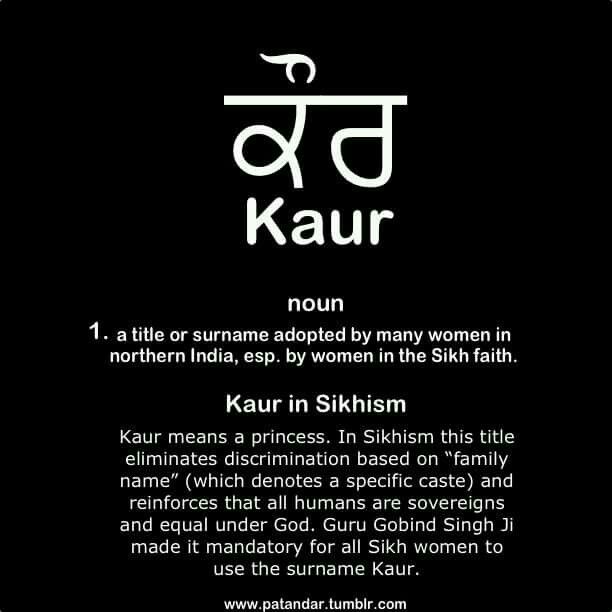BIBEKBARDHI, (bibek= discrimination or discipline, bard/if = ocean; by implication, "guide to Sikh religious practice") is a collection of rahit namas or codes of conduct compiled in AD 1877 by Pandit Bhagvan Singh, a Brahman who converted to Sikhism under the influence of Baba Sumer Singh, celebrated high priest of Takht Sri Patna Sahib. The work has never been published and the manuscript, believed to be written in the compiler`s own hand, is preserved at the Dr Balbir Singh Sahitya Kendra at Dehra Dun. The manuscript comprises 140 sheets, written on both sides, of plain handmade paper of approximately foolscap size. Paper, obviously procured at different times, ranges in colour from off white to light cream.
Explore how Javand Singh of Barki played a pivotal role in Maharaja Duleep Singh's return to Khalsa at Aden. Delve into this historic Sikh initiation.
Learn why 'Kaur,' meaning princess, is the common surname for Sikh women, symbolizing equality & tradition. Explore its Sanskrit origins & cultural significance.
Explore the Khalsa Dharam Shastar, a key Sikh text outlining rituals & practices. Delve into Sikh beliefs, ceremonial customs, & historic interpretations.
Discover PAKNAMAH, an apocryphal text urging faith, self-control & Islamic conduct, attributed to Guru Nanak. Embrace virtues for a balanced life.
Explore the concept of Punn in Indian tradition, embodying ethics, spirituality, and metaphysics, impacting present life and eschatological state.
Explore Rahitname, guiding Sikh conduct and moral behavior, shaping personal and social life in accordance with Sikh principles and the Khalsa identity.
Explore the historical significance of 'Singh' in Sikhism, symbolizing courage and unity as ordained by Guru Gobind Singh in 1699.




